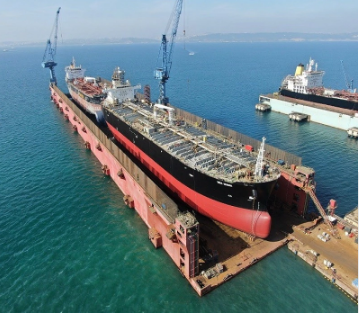Synergy Ship Management: Elevating Maritime Operations Through Expert Partnerships

Ship Management plays a pivotal role in ensuring the efficient and safe operation of vessels in the maritime industry. It involves a comprehensive range of responsibilities, including maintenance, compliance, crew management, and logistical planning. In this article, we delve into the key aspects and advantages of effective ship management.
Key Components of Ship Management
-
Maintenance and Repair: Regular upkeep is essential to ensure that ships operate safely and efficiently. Proactive maintenance minimizes the risk of mechanical failures and reduces costly downtime.
-
Regulatory Compliance: The maritime industry adheres to stringent international regulations. Effective ship management ensures vessels comply with safety, environmental, and operational standards, mitigating legal risks.
-
Crew Management: Recruiting, training, and managing the crew are integral to ship management. A well-trained and motivated crew ensures smooth operations and enhances overall performance.
-
Operational Efficiency: Optimizing routes, managing fuel consumption, and ensuring timely cargo handling are crucial aspects of ship management. These measures enhance efficiency and profitability.
-
Safety Protocols: Safety is a top priority in ship management. This involves maintaining safety equipment, conducting regular drills, and preparing for emergencies.
Benefits of Effective Ship Management
-
Operational Efficiency: Streamlined processes and maintenance reduce costs and increase reliability.
-
Enhanced Safety: Prioritizing safety measures protects lives, assets, and the environment.
-
Regulatory Adherence: Staying compliant avoids fines and builds a strong reputation in the industry.
-
Sustainability: Efficient ship management helps reduce carbon footprints through better fuel and waste management practices.
-
Profitability: Improved operational efficiency and reduced downtime lead to greater financial returns.
The Role of Technology in Ship Management
Technological advancements have revolutionized ship management. Systems leveraging IoT, AI, and data analytics provide real-time insights into vessel performance, weather conditions, and fuel efficiency. These technologies enable predictive maintenance, remote monitoring, and data-driven decision-making.
For example, integrated ship management software allows operators to oversee multiple vessels efficiently, ensuring optimal performance and compliance across fleets.
Conclusion
Ship management is the backbone of maritime operations, ensuring the safety, efficiency, and sustainability of global shipping. By focusing on maintenance, compliance, and leveraging cutting-edge technologies, the maritime industry can achieve operational excellence. As global trade expands, the importance of effective ship management will continue to grow, shaping the future of maritime logistics and transportation.
- Questions and Answers
- Opinion
- Motivational and Inspiring Story
- Technology
- Live and Let live
- Focus
- Geopolitics
- Military-Arms/Equipment
- Sicherheit
- Economy
- Beasts of Nations
- Machine Tools-The “Mother Industry”
- Art
- Causes
- Crafts
- Dance
- Drinks
- Film/Movie
- Fitness
- Food
- Spiele
- Gardening
- Health
- Startseite
- Literature
- Music
- Networking
- Andere
- Party
- Religion
- Shopping
- Sports
- Theater
- Health and Wellness
- News
- Culture

